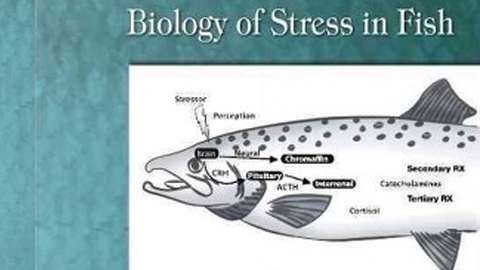New reference book on the biology of stress in fish

08/02/2017
The new volume of Fish Physiology, entitled "Biology of Stress in Fish", was edited by specialists Carl Schreck of Oregon State University and Lluís Tort, lecturer of the Department of Cellular Biology, Physiology and Immunology at the UAB, together with A. P. Farrell and C. J. Brauner, editors of Fish Physiology, a world reference book published by Academic Press (Elsevier).
Like all animals, including people, fish also experience stress and suffer its consequences, such as problems of immunodepression and pathologies. The volume, containing thirteen chapters, provides extensive knowledge on the subject of the biology of stress in fish, and includes the most recent advances in the field. The book begins with an introduction to what is stress, offering answers to questions such as the concept, the nature of the response to physiological stress, and the factors which affect how we respond to stress. Also taken in consideration are the biotic and aquatic factors causing a variation in the response, such as how the response is generated and controlled, its effect on physiological functioning and performance, and also more applied aspects, such as stress evaluation methods and animal welfare in both wild and farmed fish, such as trout and bass, and in fish used for research, e.g. zebrafish.
The new volume, in which lecturer Lluís Tort wrote the introduction and one of the chapters on stress and the immune system, aims to be a useful tool for academics and researchers in physiology, ichthyology, ichthyopathology or biomedicine, as well as people working with aquafarming, fisheries management or animal welfare, in both research and management and regulation tasks.